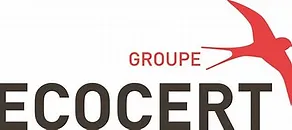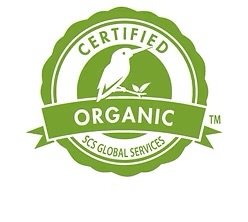New Hampshire
Organic Certification Support
Organic certification is available to all farms in New Hampshire through several Accredited Certifying Agencies. Farms can be certified in one or more of four scopes: Crops, Wild Crops, Livestock, and Processing/Handling. NOFA-NH supports transitioning farms through the Transition to Organic Partnership Program (TOPP), offering free mentorship to help develop an Organic System Plan and prepare for certification, while strengthening the regional organic farming network.

Choosing an Organic Certifier
Learn about what to consider when choosing an Accredited Certifying Agency to organically certify your farm, food hub, or processing facility. Any entity that grows, repacks or processes organic foods for resale, must certify to allow that food to retain the organic certification and use the organic marketing label.
Current Accredited Certifying Agency’s for New Hampshire
Baystate Organic Certifiers
MA, USA
774-872-5544
Baystateorganic.org
Ecocert
France
888-337-8246
ecocert.com
MOFGA Certification Services
ME, USA
207-568-6030
mofgacertification.org
Oregon Tilth
OR, USA
503-378-0690
tilth.org
(Limited service area in NH)
814-422-0251
paorganic.org
Quality Assurance International
CA, USA
858-792-3531
qai-inc.com
SCA Global Services
CA,USA
510-452-8000
scsglobalservices.com
Vermont Organic Farmers
VT, USA
All ACA's certify organic operations to the USDA Organic Regulations. Some ACA's have specific guidelines for organic certification of specialty crops, such as mushrooms, cranberries, low-bush blueberries, and sea vegetables.
In the following link to the USDA Organic Integrity Database, click on a specific ACA name, then click on Accredited Scopes. The good news is that you will now be able to have your complete operation certified by one ACA. If you have livestock or wanted to add value-added products to your operation, you can now be certified for livestock and/or processing/handling by the same ACA.
802-434-3821
nofavt.org
-
All ACAs publicly post their fee schedules on their websites. Certification fees may be based on gross organic sales, acreage, or greenhouse square footage. There may be a one-time initial certification fee. Adding a second scope may increase your fees. There may be a late fee if your application is not submitted by the ACA’s deadline date. The inspection fee may be separate from the certification fee or if the inspection fee is more than estimated, you may be billed for the remainder. Calculate your fees and check with the ACA on fees when you make your initial phone call.
-
Certification fees partially offset by the federally funded Organic Certification Cost Share Program, administered in NH by the Farm Service Agency (FSA). Cost share is available per scope, up to $750 or ¾ of the certification cost for that scope. The FSA has an October deadline for applying. Don’t wait as this is funded as a first come, first served program.
Notify FSA at 603-224-7941 so they mail you the information.
FSA County offices can be located at:
Transitioning to Organic
NOFA-NH offers programs and resources to help farmers through the organic certification transition, including a mentorship program and technical assistance.
NOFA-NH is a core partner in the Transition to Organic Partnership Program (TOPP) that supports the mentorship program for transitioning farmers for a year or more as well as offers technical assistance to transitioning and already certified producers with development of your Organic System Plan, recordkeeping, inspection prep, and meeting the organic regulations.
Effective recordkeeping is the backbone of any successful organic operation. This presentation is designed to simplify and streamline your recordkeeping practices while staying compliant with organic certification standards. Whether you’re a farmer, herbalist, or artisan producer, this will help to equip you with the tools and strategies to track your operations efficiently and confidently.
We will cover the basics of organic certification requirements. Explore ways to record data that's needed using digital tools and templates and finding ways to capture that data that works for you in real time.
Dive into the heart of organic agriculture, where values and practices align to nurture both the land and the community. This presentation explores the synergy between the core principles of organic farming and the regulatory standards that enable producers to use the organic marketing label.
Gain an understanding of the core philosophies of organic agriculture, such as fostering biodiversity, maintaining soil health, and creating resilient ecosystems. We’ll celebrate the unity between the ethical and the practical, empowering us to grow in a way that sustains the earth, strengthens communities, and meets industry standards. Bridge these ideals with organic certification regulations, showing how rules and guidelines work as allies in creating a sustainable, transparent food system that reaches beyond production.
STAY CONNECTED
NOFA-NH offers many ways to stay connected in every season.
On-Farm workshops are happening during the summer and fall.
Winter brings our Winter Conference, Bulk Order and many virtual events.
Spring opens up more programs with our Organic Gardening Series.
The Farmers Organic Roundtable occurs on the Third Thursday of some months.
Learn More…
Together, we can build organic community in NH.














